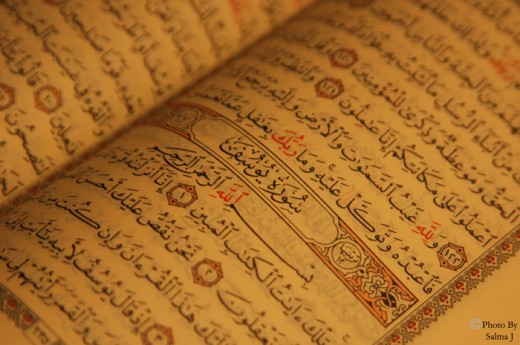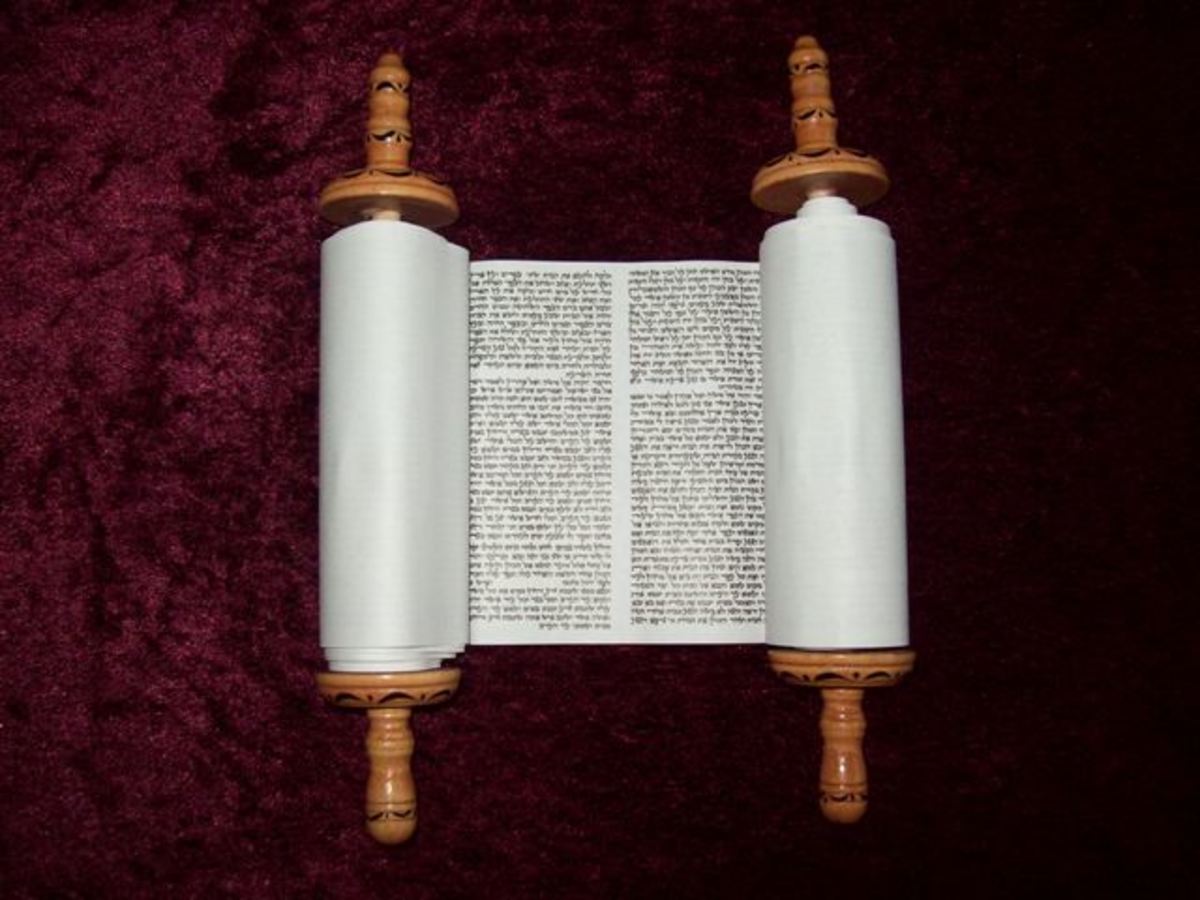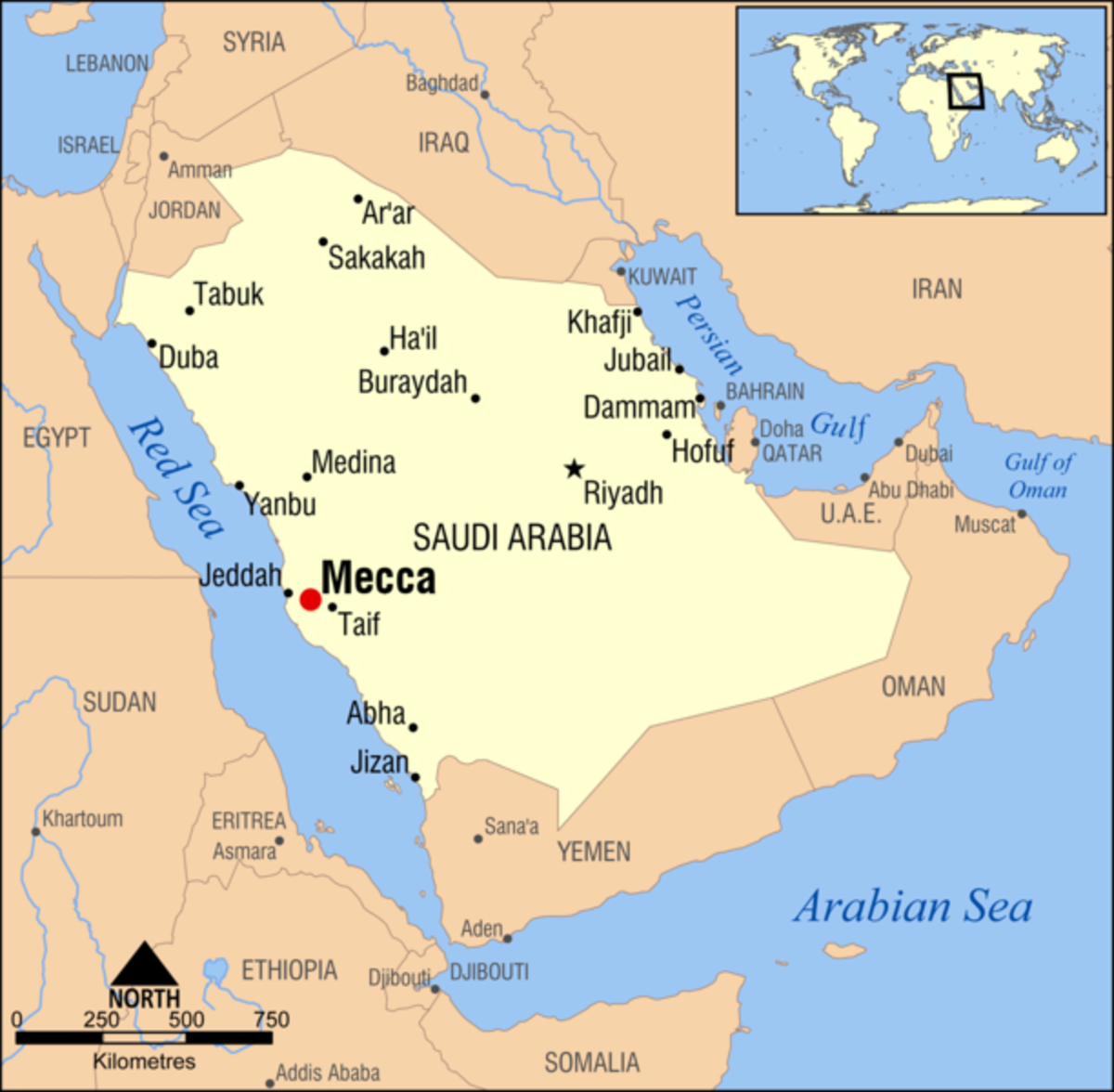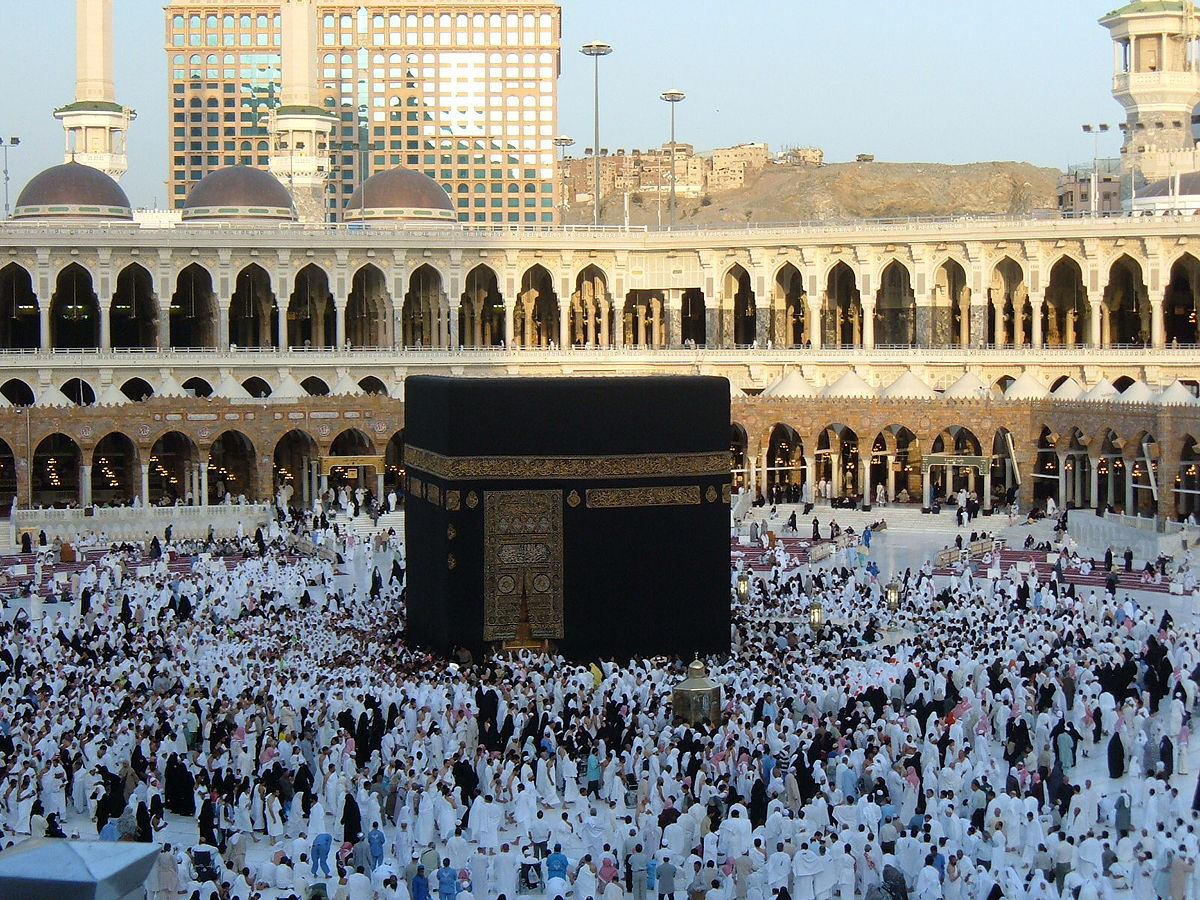What are Some true beliefs of the Muslim Religion? and When was the quran written?

The Quran was written in the same time revealed. Once a verse is revealed, prophet Muhamed dictated it to a writer and recites it to his companions, so hundreds, thousands of them memorized the quran and revised it with him many times. Since then and for the past 1400 years Muslims had the same book all over the world, typical copies from the original.
Prophet Muhammad, Sall-Allahu alayhi wa sallam(Peace be uopn him), made special arrangements to have it written down. When Prophet Muhammad, (PBUH), used to receive a revelation, he dictated it to a Companion, who wrote it down on anything that was available: bark, stone, bones, leaves, etc. The companion then read, what he had written, to the Prophet. If there were any mistakes, Prophet Muhammad, (PBUH) would correct it and then let it be brought before everyone. Prophet Muhammad also told the order of the verses, etc, and they were written accordingly.
So, in the days of the Prophet Muhamad one copy of the Qur’an existed of what he had gotten written under his personal supervision. It was not in book form but in different parchments. Other Companions also had collections of the Qur'an for their personal record but no standard copy of the Qur'an in book form existed. Later on it was compiled and put in book form.
For more info, a very simple explanation here:
http://www.albalagh.net/kids/history/quran_compilation.shtml
SomeTrue Beliefs of Islam:
1-There's is no God but Allah(oness of God)
Allah is simply the Arabic word for God. Allah for Muslims is the greatest and most inclusive of the Names of God, it is an Arabic word of rich meaning, denoting the one and only God and ascribing no partners to Him.
It is exactly the same word which the Jews, in Hebrew, use for God (eloh), the word which Jesus Christ used in Aramaic when he prayed to God. God has an identical name in Judaism,Christianity, and Islam; Allah is the same God worshiped by Muslims, Christians and Jews.
The foundation of the Islamic faith is belief in the Oneness of Almighty God - the God of Abraham, Noah, Moses and Jesus. Islam teaches that a pure belief in One God is intuitive in human beings and thus fulfills the natural inclination of the soul. As such, Islam's concept of God is straightforward, unambiguous and easy to understand. Islam teaches that the hearts, minds and souls of human beings are fitting receptacles for clear divine revelation, and that God's revelations to man are not clouded by self-contradictory mysteries or irrational ideas.
As such, Islam teaches that even though God cannot be fully comprehended and grasped by our finite human minds, He also does not expect us to accept absurd or demonstrably false beliefs about Him. According to the teachings of Islam, Almighty God is absolutely One and His Oneness should never be compromised by associating partners with Him - neither in worship nor in belief. Due to this, Muslims are required to maintain a direct relationship with God, and therefore all intermediaries are absolutely forbidden.
From the Islamic standpoint, believing in the Oneness of God means to realize that all prayer and worship should be exclusively for God, and that He alone deserves such titles as "Lord" and "Savior". Some religions, even though they believe on "One God", do not make all of their worship and prayers for Him alone. Also, they also give the title of "Lord" to beings that are not All-Knowing, All-Powerful and Un-Changing - even according to their own scriptures. Suffice it to say that according to Islam, it is not enough that people believe that "God is One", but they must actualize this belief by proper conduct. In short, in the Islamic concept of God, which is completely based on Divine Revelation, there is no ambiguity in divinity - God is God and man is man.
Muslims believe that Allah's sovereignty is to be acknowledged in worship and in the pledge to obey His teaching and commandments, conveyed through His messengers and prophets who were sent at various times and in many places throughout history. However, it should be noted that God in Islam is One and Only. He, the Exalted, does not get tired, does not have a son (i.e. Jesus) or have associates, nor does He have human-like attributions as found in other faiths.
Jesus peace be upon him is a true prophet like Moses, Noah, etc.
2-The Prophet Muhammad:
The final prophet of Islam is a real documented and historical figure. He lived in the full light of history, and the most minute details of his life are known. Not only do Muslims have the complete text of God's words that were revealed to Muhammad, but they have also preserved his saying and teachings in what is called "hadith" literature.
This having been said, it should be understood that Muslims believe that the Prophet Muhammad was only a man chosen by God, and that he is not divine in any way. In order to avoid the misguided wish to deify him, the Prophet Muhammad taught Muslims to refer to him as "God's Messenger and His Slave". The mission of the last and final prophet of God was to simply teach that "there is nothing divine or worthy of being worshipped except for Almighty God", as well as being a living example of God's revelation. In simple terms, God sent the revelation to Muhammad, who in turn taught it , preached it, lived it and put it into practice.
3- Freedom of religion:
Freedom of religion is laid down in the Quran itself: "There is no compulsion (or coercion) in the religion (Islam). The right direction is distinctly clear from error." (Qur'an 2:256).
4-Women in Islam:
The image of the typical Muslim woman wearing the veil and forced to stay home and forbidden to drive is all too common in most peoples thoughts. Although some Muslim countries may have laws that oppress women, this should not be seen as coming from Islam. Many of these countries do not rule by any kind of Shari'ah (Islamic law) and introduce their own cultural standpoints on the issue of gender equity.
Islam on the other hand gives men and women different roles and equity between the two is laid down in the Quran and the example of the Prophet (peace be upon him). Islam sees a woman, whether single or married, as an individual in her own right, with the right to own and dispose of her property and earnings. A marriage gift is given by the groom to the bride for her own personal use, and she keeps her own family name rather than taking her husband's. Both men and women are expected to dress in a way that is modest and dignified. The Messenger of God (peace be upon him) said: "The most perfect in faith amongst believers is he who is best in manner and kindest to his wife."
Violence of any kind towards women and forcing them against their will for anything is not allowed. A Muslim marriage is a simple, legal agreement in which either partner is free to include conditions. Marriage customs thus vary widely from country to country. Divorce is not common, although it is acceptable as a last resort.
More info :
-Women In Islam: Beyond the Stereotypes.
5-The Five Pillars os Islam:
1- The belief (Imaan): That there is no God to be worshipped except Allaah (the one God) and that Muhammad (peace and blessings of God be upon him) is His Messenger.
2- Performing the prescribed prayers (Salaat): five times a day.
3- Fasting (Siyaam): Once a year, from sunrise to sunset throughout the entire month of Ramadhan.
4- Charity (Zakaat): Which is paid to the poor and needy once every year.
5- Hajj: Which is the pilgrimage to Makkah once in a lifetime if one is physically able and can afford it financially. Pillars are part of a building. The building in this case is the perfect human being who cares and protects the rights of all creations and fellow humans, thus establishing a society in which truth and justice and peace is supreme.
6-When someone becomes a Muslim :
The words that are spoken when one becomes a Muslim, are few but so significant. With the utterance of these words, a person acknowledges Allah as the Creator and Sustainer of all, and the messengership of His Prophet (peace be upon him). With these words, which come from the heart, a person steps from disbelief and ignorance to knowledge, light and guidence. A person can only reach this state by the Mercy and Guidance of Allah the Almighty.
[There is no god worthy of worship except Allah and Muhammad (peace be upon him) is His Prophet]








